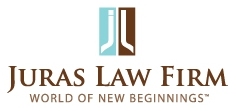The temporary increased debt limit for cheaper and streamlined small business bankruptcy is ending
The Small Business Reorganization Act added a new Subchapter V to Chapter 11 of the Bankruptcy Code, which streamlines the bankruptcy process and makes it more cost-efficient for businesses to reorganize. Not all businesses qualify for this streamlined reorganization process. Only individuals and companies with total debts below $2,725,625 may take advantage of this process. The CARES Act temporarily increased the debt limit to $7,5 million for bankruptcies filed from March 27, 2020, through March 26, 2021 (extended for another year), allowing small businesses affected by the COVID-19 pandemic to use this easier reorganization bankruptcy process.
At least 50% of the total debt must be from commercial or business activities. A business with primary business activity the ownership of single asset real estate cannot use this streamlined Subchapter V. Subchapter V eliminated certain costs and the plan confirmation is less complex and time-consuming. Also, the equity holders may keep their ownership in their company, even if they do not pay creditors in full and do not provide any new value.
Please note that this article does not constitute legal advice. We simplified the law to provide general information about a relatively new bankruptcy option for small businesses. If you would like to discuss if this type of bankruptcy is the best option for your business, schedule a consultation with an experienced bankruptcy lawyer in Phoenix at www.calendly.com/irena-3 today or call our office at 480-425-2009! We look forward to talking with you and helping you with restoring your peace of mind.
